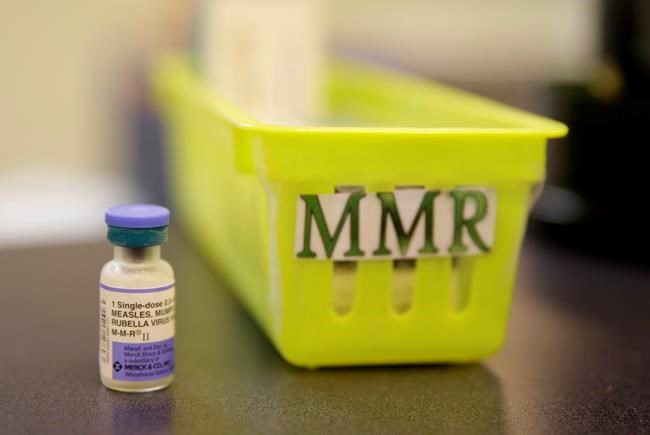Health Minister Adrian Dix has refused to make measles vaccination mandatory, despite outbreaks of the highly contagious disease in Vancouver and Washington state. He has, however, said that parents will have to present vaccination status reports when kids begin school, starting in September.
Children who haven’t been inoculated might be sent home if an outbreak occurs. Their parents will also have to attend a course showing them the risks they are taking. Ontario uses this approach.
But is it really necessary to forgo the stronger measure of requiring vaccination? The minister noted that “no jurisdiction [in Canada] has what’s called a forced system.” And technically speaking, that’s true. There are circumstances in which vaccination cannot be compelled.
And some public health officials in B.C. have argued that persuasion is more effective than compulsion. Yet that hasn’t been the experience in other jurisdictions.
According to the Canadian Medical Association Journal, three provinces, New Brunswick, Ontario and Manitoba, all require vaccination before children enter school. Manitoba requires measles shots, while the other two extend the program to diphtheria, tetanus, polio, mumps and rubella. In Ontario, failure to comply can lead to a fine of up to $1,000.
In each case, exceptions are made on medical and religious grounds, and also on the basis of parental conscience.
In Europe, 11 countries have mandatory vaccinations, and several more are moving in that direction. There is, in short, no lack of precedent.
In fairness, the minister’s caution is understandable. “Anti-vaxxer” groups will fight any such measure.
Their stance is based more on emotion and shoddy research than valid grounds, but they have alarmed many well-intentioned parents, who, naturally, want the best for their children. In this respect, the decision to provide skeptical parents with reassuring information makes sense.
Yet the case in favour of vaccination is one of the most solid in all of medicine. It was by this means that the great child-killing diseases of earlier centuries were tamed, in the process helping extend life expectancy significantly.
In 1900, on average, Canadians lived to 48. Today we’ve reached the low 80s. Not all of this is down to childhood inoculation, of course, but a good part of it is.
Vaccination eradicated smallpox — one of the scourges of humankind through the ages — and we are within perhaps a few years of doing the same to polio.
Other factors also come into play. For infectious ailments to survive, they need victims, and not very many. In the case of measles, the disease can propagate itself if only five per cent of the population remains unvaccinated.
But that means the inoculation rate has to reach at least 95 per cent. It is unlikely that target will be reached by purely voluntary means. Genuine protection is only possible if some form of compulsory approach is used.
And there is evidence it works. In New Brunswick, 93.6 per cent of children enter kindergarten with the required vaccinations. By contrast, the B.C. Centre for Disease Control reports that across our province, only 76 per cent of youngsters have had their shots.
It is no accident that Washington state, in the midst of a measles emergency, has one of the highest non-vaccination rates in the U.S.
If it helps Dix take a stronger stance, the Angus Reid polling company recently found that 70 per cent of Canadians believe vaccination should be compulsory. That’s a much higher favourability rating than any political party can hope for.
Edward Jenner, the first western scientist to create a vaccine (for smallpox, in 1796), and Louis Pasteur, who followed him, would turn over in their graves if they knew how we’re squandering their gift.
The time for half measures has long since passed. This is not a matter for personal choice. It is a matter of saving lives.



